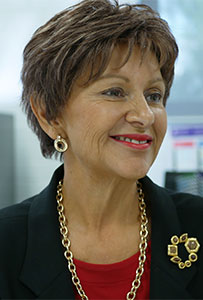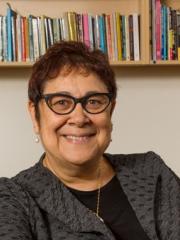9 Writing about Aboriginal and Torres Strait Islander Peoples
As with person-to-person communication, there are protocols to follow when writing about Aboriginal and Torres Strait Islander peoples.
Resources for Writing about Aboriginal and Torres Strait Islander Peoples and Cultures
The Australia Council for the Arts sets out cultural protocols to observe when writing about Aboriginal or Torres Strait Islander peoples, cultures, histories and stories. It is important to recognise that Aboriginal and Torres Strait Islander knowledges and stories comprise Indigenous Cultural and Intellectual Property.
The Protocols for Using First Nations Cultural and Intellectual Property in the Arts were developed by Meriam/ Wuthati lawyer, Terri Janke, and Company. Terri Janke is an international authority on Indigenous Intellectual and Cultural Property.
Her book, True Tracks (2021) explains how to engage respectfully and ethically with Aboriginal and Torres Strait Islander peoples and cultures. More information about these protocols is available in Chapter 10.
Referencing Aboriginal and Torres Strait Islander Writers and Scholars in Academic Work
One of the consequences of colonisation in Australia was to be dismissive of Aboriginal and Torres Strait Islander Knowledge systems. Historically, non-Indigenous peoples have been the authorities on Aboriginal and Torres Strait islander cultures, histories and societies. Aboriginal and Torres Strait Islander peoples were often relegated to being ‘objects’ of research, ‘curiosities’, members of ‘a dying race’. The voices of Aboriginal and Torres Strait Islander peoples were silenced.
This situation is changing as Aboriginal and Torres Strait Islander people become writers and have their work published. This is also the case within the academy where Aboriginal and Torres Strait Islander scholars are producing work in the various disciplines.
It is important to reference Aboriginal and Torres Strait Islander authors because it not only demonstrates an understanding that Aboriginal and Torres Strait Islander peoples are the authoritative voices on Aboriginal and Torres Strait Islander matters, but also elevates Aboriginal and Torres Strait Islander Knowledges within the academy. This contributes to Reconciliation.
UQ Library Resources
When writing about Aboriginal and Torres Strait Islander peoples and cultures, students and staff are strongly encouraged to use reference materials produced by Aboriginal and Torres Strait Islander peoples. This both demonstrates an understanding that Aboriginal and Torres Strait Islander writers are the authoritative voices on Aboriginal and Torres Strait Islander matters, and elevates Aboriginal and Torres Strait Islander Knowledges within the academy.
UQ Library’s Indigenising Curriculum Resources collection not only provides a rich and curated collection of teaching resources, but also sets out innovative approaches for embedding Aboriginal and Torres Strait Islander Knowledges and perspectives in the curriculum. It aims to be the principal resource for developing inclusive teaching practices in UQ programs.
The Aboriginal and Torres Strait Islander Discovery Collection contains materials, images, and literature including theses, languages and guides to assist you in writing about Aboriginal and Torres Strait Islander peoples.
The Library’s Aboriginal and Torres Strait Islander resources contribute to truth-telling and healing Country. Embedding and increasing access to these perspectives will help students to have a richer and more accurate understanding of Australia’s history and culture, supporting a more reconciled Australia.
The collections include:
- Aboriginal and Torres Strait Islander languages– this collection includes more than 250 Indigenous languages, also known as AUSTLANG, including 800 dialects that connect people to Country, culture, and ancestors.
- Activism and resistance– this collection shows how Aboriginal and Torres Strait Islander peoples have been fighting injustice and misconceptions since European arrival, and how activism and resistance led by Aboriginal and Torres Strait Island grassroots campaigns have brought about change.
- Aboriginal and Torres Strait Islander authors– this collection celebrates Aboriginal and Torres Strait Islander authors, who are a part of the oldest living culture and original storytellers.
- Images– this collection includes photographs celebrating the memories, people, places, events, and objects of Aboriginal and Torres Strait Islander cultures.
- Yarns and spoken memories– whether it be written, spoken, performed, or produced, exchanging stories is the oldest form of sharing culture and knowledge and Aboriginal and Torres Strait Islander peoples have been sharing their stories and yarning for 65,000 years or more. This collection amplifies their voices.
- Non-Indigenous representations of Aboriginal and Torres Strait Islander cultures– this collection will raise awareness of how Aboriginal and Torres Strait Islander peoples are some of the most researched communities from a point of view not necessarily their own.
- Torres Strait Islands– this collection showcases the unique culture, linguistic, and geographic qualities of the Torres Strait Islands, which are distinct and different from Aboriginal Australia.
Aboriginal and Torres Strait Islander library guides have been developed out of respect, to assist with the inclusion of Aboriginal and Torres Strait Islander knowledges and perspectives in curriculum and teaching practices. Those resources include how to reference Aboriginal and Torres Strait Islander authors and acknowledge their relationship to Country.
BlackWords
The Austlit BlackWords website also provides a valuable catalogue of Aboriginal and Torres Strait Islander writers. AustLit is a comprehensive database of Australian stories that has been running in different forms for almost three decades and BlackWords is one of its most significant projects. Launched in 2006 by Uncle Sam Watson, BlackWords provides access to a vast record of Aboriginal and Torres Strait Islanders storytellers and their publications. The first national coordinator of BlackWords was Professor Anita Heiss who has remained one of BlackWords’ most enthusiastic champions.
BlackWords records information about the lives and works of Aboriginal and Torres Strait Islander writers and storytellers and the literary cultures and traditions that influenced them. It contains records for published and unpublished books, stories, plays, poems, and secondary works and includes works in English, in translation and in Australian languages. It also covers other forms of creative writing including film and television criticism and scholarship by Aboriginal and Torres Strait Islander critics, academics, and creatives, and about Aboriginal and Torres Strait Islander storytelling cultures.
BlackWords records information about stories from oral traditions that are part of Aboriginal and Torres Strait Islander storytelling cultures but which have not been formally published. BlackWords also records details of works that contain stories or oral narratives that are relevant to aspects of Aboriginal and Torres Strait Islander experience, such as mission histories, that are not included in AustLit’s scope.
Since its inception, BlackWords has benefited from a large team of Aboriginal and Torres Strait Islander researchers, indexers and advisors at a number of institutions who have worked to contextualise all this information through Indigenous-curated datasets and information trails. Most BlackWords records have been reviewed by Indigenous researchers.
Aboriginal and Torres Strait Islander researchers
Reconciliation in the academy means acknowledging that there exist two knowledge systems within this country that can be referred to. Become familiar with works by Aboriginal and Torres Strait Islander scholars.
In this video series, produced for Honours students in Humanities, Arts and Social Sciences, Professor Of Indigenous Education, Tracey Bunda (Ngugi/Wakka Wakka), discusses how a Storying methodology can inform the research process. She explains how the stories of her Old People informed her PhD thesis, and in turn, that thesis offered a means to document those stories in written form. Watch Professor Tracey Bunda on Storying (YouTube, 9m33s)
Professor of Communications and acclaimed Wiradjuri writer, Anita Heiss, talks about the importance of perspective in her recent works of historical fiction, which intervene into a subjective colonial history to promote truth-telling. Her latest novel, Bila Yarrudhanggalangdhuray (River of Dreams) , won the 2022 NSW Premier’s Literary Awards Indigenous Writer’s Prize. She has written more more than 20 works of historical fiction, children’s literature, and chick-lit. Her non-fiction works include I’m not Racist, But…, Am I Black Enough For You?, and Dhuluu-Yala (To Talk Straight.) Watch Professor Anita Heiss on truth telling, perspective and subjectivity (YouTube, 9m56s)
Professor Martin Nakata (Torres Strait Islands) is Deputy Vice Chancellor, Indigenous Education and Strategy at James Cook University. He developed Indigenous standpoint theory as a means to engage with more than 200 years of Western colonial theories. His latest work, co-written with Vicky Nakata, is Supporting Indigenous Students to Succeed at University: A Resource for the Higher Education Sector. Watch Professor Martin Nakata on the cultural interface in the everyday world (YouTube, 4m12s)
Gamilaraay, Wailwan / Biripi lecturer and experimental digital artist, Dr r e a Saunders, discusses the role of research-led practice in their series ‘Native’. The series responds to a NSW school, the Native Institute, established in 1914 , which sought to educate Aboriginal children. Watch Dr r e a Saunders on Research-led practice (YouTube 8m41s)
In this video, r e a explains how her digital series ‘Native’ offers a decolonising and Indigenising arts practice. Watch Dr r e a Saunders on ‘Native’ (YouTube, 8m40s)
Distinguished Aboriginal Scholars at UQ
Deputy Vice Chancellor (Indigenous Engagement) Professor Bronwyn Fredericks is an Aboriginal scholar whose distinguished career spans academic, government and health settings. Her research extends across health, education, community development, policy and Indigenist research methods. She is the recipient of the 2022 NAIDOC education award and the 2019 Aboriginal and Torres Strait Islander Health Award. She has written more than 150 influential works.

In 2021, Professor Fredericks co-edited Yatdjuligin: Aboriginal and Torres Strait Islander Nursing and Midwifery Care with Professor Odette Best (Gurreng Gurreng), Pro-Vice Chancellor First Nations Education and Research at University of Southern Queensland.
She has served as a Productivity Commissioner (2016), was the Presiding Commissioner for the 2017 Inquiry into service delivery in Queensland’s remote and discrete Indigenous communities, and in 2019, was a Commissioner for the Inquiry into Imprisonment and Recidivism.
Emeritus Professor Aileen Moreton-Robinson (Goenpul) is the first Aboriginal person to be appointed as a Distinguished Professor in Australia. Based in Social Sciences at UQ, she was elected as an Honorary member of the American Academy of Arts and Sciences in 2020. She has been instrumental in the formation of the ARC Centre of Excellence for Indigenous Futures.

Her PhD thesis, Talkin’ Up to the White Woman: Indigenous Women and Feminism was published in 1999 to great critical acclaim, being short-listed for the NSW Premier’s Literary Awards and the Stanner Award. A 20th anniversary edition was published in 2019 by the University of Queensland Press.
She has written several influential books in the fields of Critical Race and Whiteness Studies and Critical Indigenous Studies.

